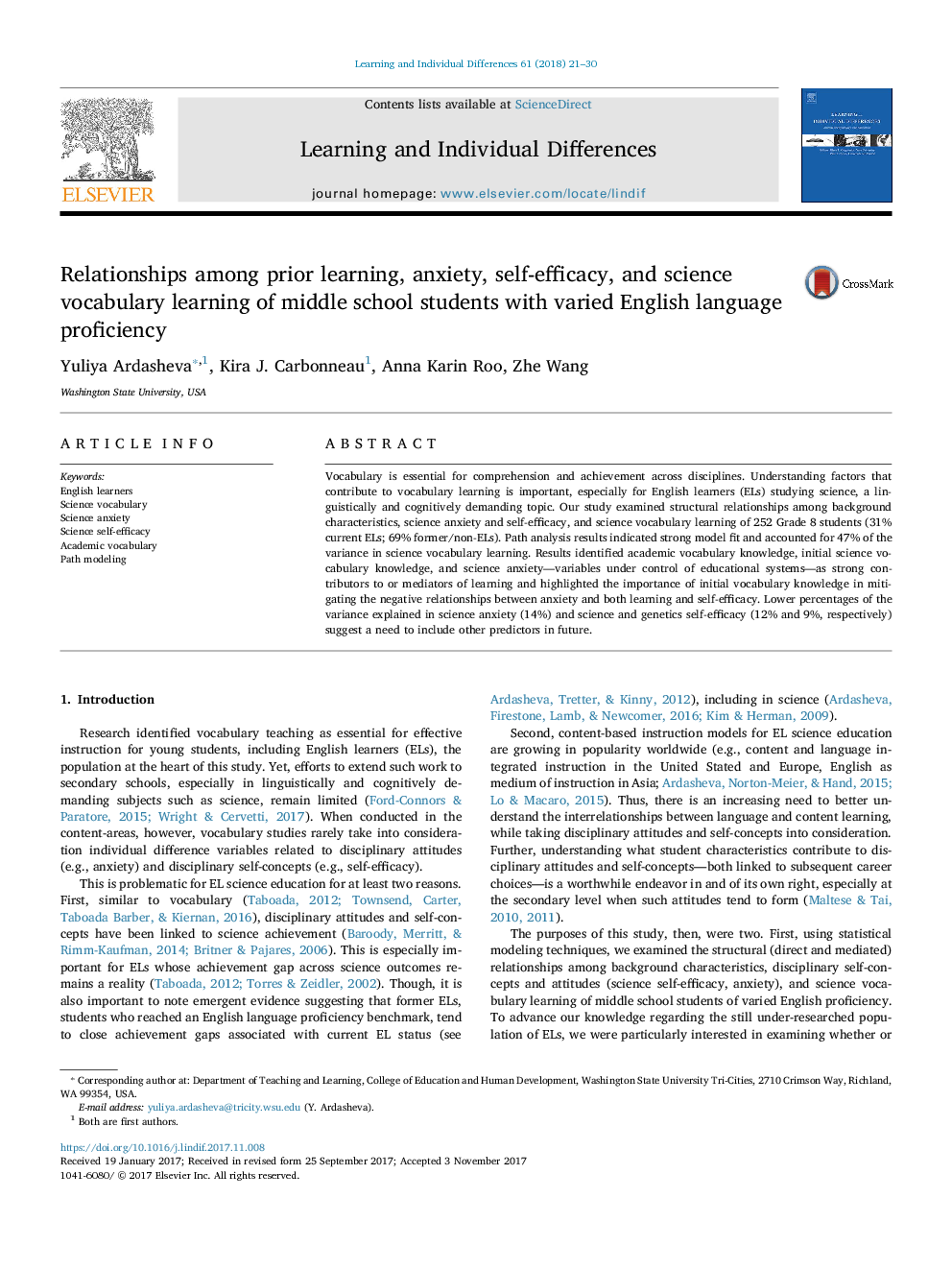ترجمه فارسی عنوان مقاله
روابط میان یادگیری قبلی، اضطراب، خودآموزی و یادگیری لغات علمی دانش آموزان دبیرستانی با مهارت زبان انگلیسی متنوع
عنوان انگلیسی
Relationships among prior learning, anxiety, self-efficacy, and science vocabulary learning of middle school students with varied English language proficiency
| کد مقاله | سال انتشار | تعداد صفحات مقاله انگلیسی |
|---|---|---|
| 161179 | 2018 | 10 صفحه PDF |
منبع

Publisher : Elsevier - Science Direct (الزویر - ساینس دایرکت)
Journal : Learning and Individual Differences, Volume 61, January 2018, Pages 21-30
ترجمه کلمات کلیدی
زبان آموزان انگلیسی، واژگان علمی، اضطراب علمی، خودکارآمدی دانش، واژگان علمی، مدلسازی مسیر،
کلمات کلیدی انگلیسی
English learners; Science vocabulary; Science anxiety; Science self-efficacy; Academic vocabulary; Path modeling;

